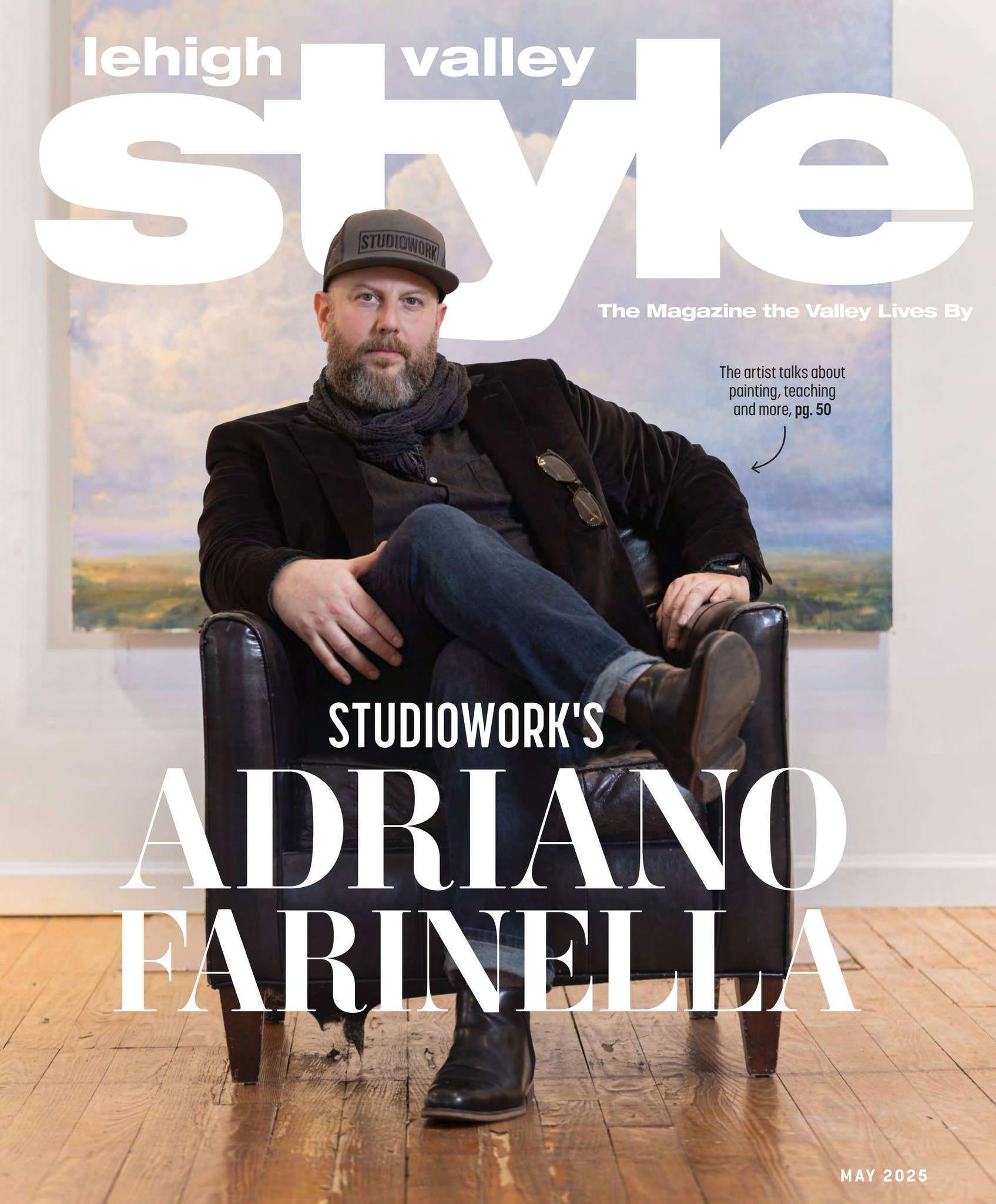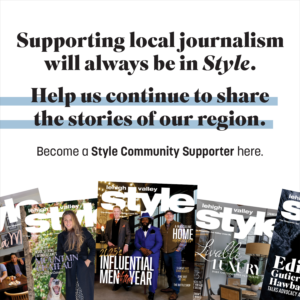The umbrella of wellness covers every facet of our lives, from the financial and occupational to the emotional and spiritual. So, what defines this holistic take on health? Incremental, sustainable choices, compassionate inward assessment and a mindful presence with each step of a lifelong journey. For inspiration along the way, here's some local expert advice for achieving each realm of wellness.
Emotional
“As a population, we struggle,” says Chris Wolfe, associate medical director at the Lehigh Center for Clinical Research. “We're not really taught how to talk about feelings or deal with stress in a healthy way.” The ability to work through the vagaries of life doesn't come automatically with the heart and mind we're issued at birth, but it can be improved with a few simple habits.

Sleep and Exercise
We're not just physically taxed by scant sleep and a sedentary lifestyle. “People don't realize how much their sleep cycle affects their moods,” Wolfe says. Even just walking consistently can burn off anxiety and help you sleep better.
These are Wolfe's first items of advice because they're so powerful and so overlooked:
Stop Comparing Yourself
“There will always be someone with more,” Wolfe says. “It doesn't matter what other people are doing. Take care of yourself.” Yes, this is direct shade on social media's insidious influence.
Nothing Bad Comes of Therapy
Especially for men, there's still a stigma about talking to a therapist, but even if you're not in crisis or even particularly troubled, it offers immense benefits. Advice on communicating and setting boundaries with family and friends, for instance, can bring life-changing improvements to relationships.
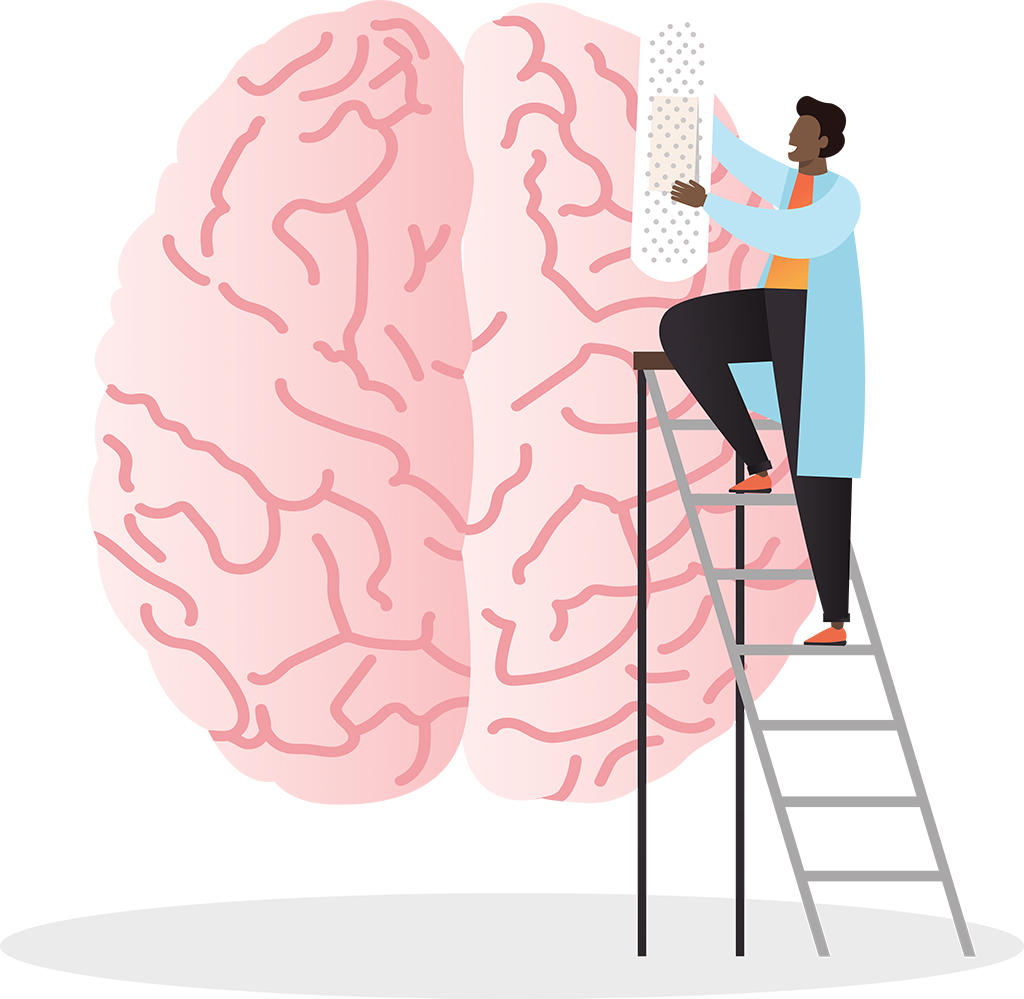
Intellectual
CEO at Manifest Excellence, LLC, Donna L. Hamilton, MD, is a virtuoso in the realms of resilience and productivity, two things that rely on robust intellectual wellness. As we settle into our habits and the world around us keeps evolving, it takes a little maintenance to stay sharp! Here's how to cultivate an open, limber mind for life.
Fresh Fun
Anything new stirs the synapses, from learning a new language or how to play an instrument to creative arts, sports or dance, along with the classic puzzles and games. Keep finding fun things to try and your mind stays on its toes.
Lifelong Learning
Just because you're not in school doesn't mean you can't build your knowledge. Books, podcasts, tutorial videos and online courses can have you delving into history, appliance repair, fermentation—you name it. You have the freedom and flexibility to choose the medium that works best for you.
Keep an Open Mind
Good conversation can be a chance to listen and learn not just new info but new perspectives. Staying curious and receptive to varying opinions helps widen your worldview.
Financial
Money matters are the number one stressor in life and relationships, fraught with what can seem like intimidating intricacies. But like a garden, with a little consistent tending your financial life will bear fruit for the future. Julie Knight, CERTIFIED FINANCIAL PLANNER™ professional at Janney Montgomery Scott LLC, explains how can we reach retirement without wondering where we went wrong.
Know Your Flow
“Most people don't know how much they spend,” Knight says. Analyze and direct your cash flow: Income minus Expenses equals Savings. You'll be empowered to prioritize what you really need and decide what you want now versus what you want to save for long-term.
Pay Yourself First
If you've got extra money, it might help your self-control to see your savings as a bill that's high priority. Take choice out of the equation and schedule automatic payments to your savings and/or investments.
Speak Freely
Forget any taboo about money talk. “We need to discuss money with our spouses, parents, children and loved ones,” Knight says. Especially when it comes to info needed when there's a health event or a death, have the conversation about whether and where that info is organized. Lost logins and passwords can mean lost money!
Get Help
Don't have time to research strategies like dollar-cost averaging and Roth conversions? That's why financial advisors exist. Take advantage of their expertise!
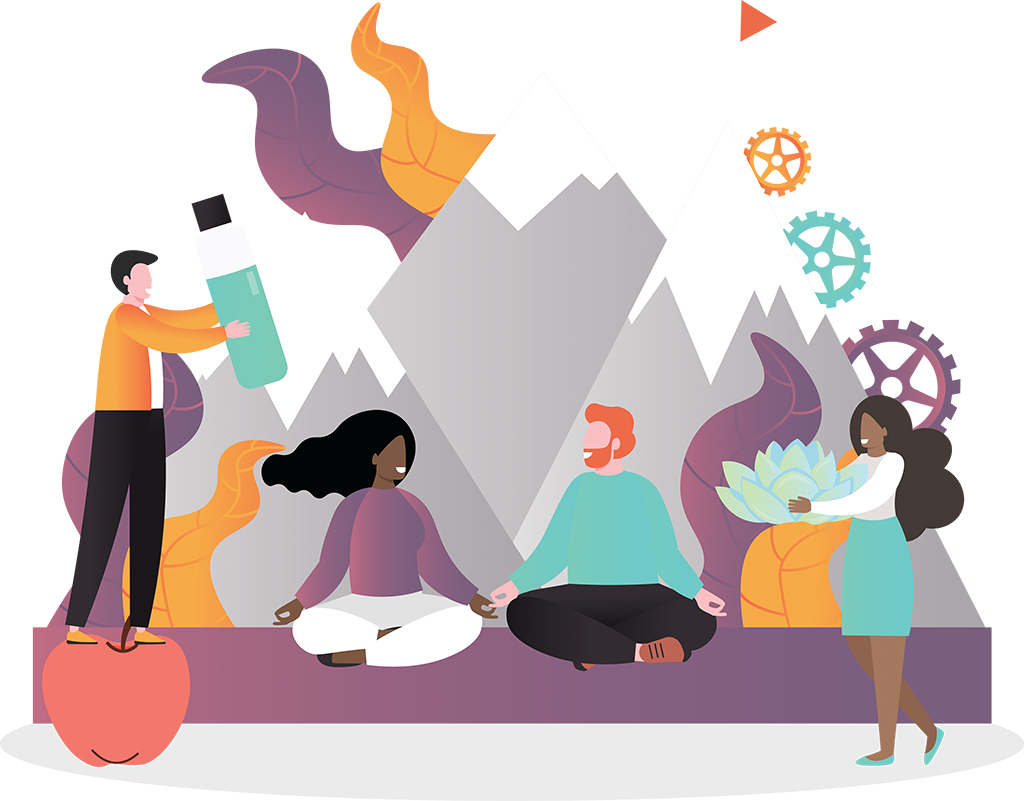
Physical
Getting and staying well physically majorly boosts mood and longevity. Vince Wimberly, owner of Life Advance Fitness in Allentown, emphasizes a focus on maintaining movement and mobility to carry us through life with fewer aches and pains. “We're not going to be able to run fast forever,” he says, “but we can keep a nice pace.”
Cut Your Goals in Half
“All or nothing isn't a good approach,” Wimberly says. Instead of cutting out all soda and catapulting into a daily gym habit all at once, maybe reduce soda and start with a couple workouts a week.
Eat Mindfully
All things in moderation. Wimberly is a fan of intermittent fasting if you're interested, but not imposing strict diet blacklists. Deciding to have an occasional candy bar once is better than cracking under a harsh regimen and guzzling mozzarella sticks on autopilot.
Have Fun
The most important thing about exercise is to keep moving. If running hurts or traditional exercise bores you, don't give up. Any activity is better than none! Embrace basketball, walking, yoga or anything that you enjoy enough to stay in motion.
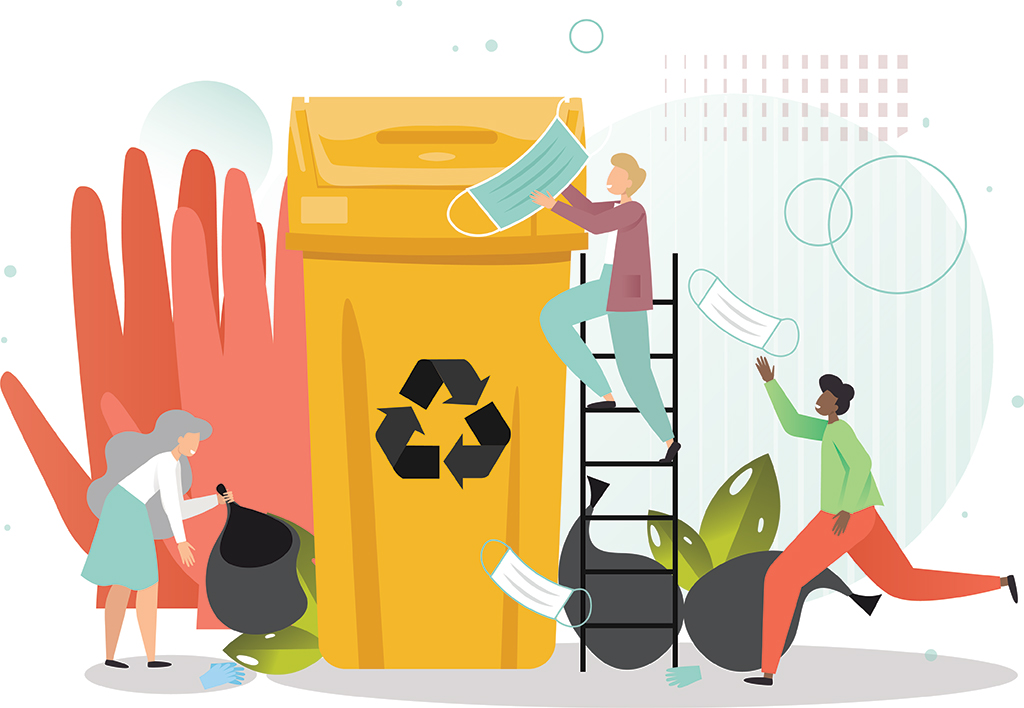
Environmental
Inextricable from our individual health is the health of our environment. Engaged with a thriving natural world, children learn better, the ill heal better and quality of life is boosted. By overburdening our Earth, though, we risk losing it. “If the whole world was to live like the U.S.,” says Kate Semmens, science director at Easton's Nurture Nature Center (NNC), “we would need five Earths to support it.”
Jump In
Rachel Hogan Carr, the NNC's executive director, says local watershed organizations are a great place to get involved. Volunteering with groups like Saucon Creek Watershed or Bushkill Stream Conservancy, you'll meet smart, committed people and get a chance to roll up your sleeves and make a difference.
Pledge Against Plastics
Not only is single-use plastic infesting our environment, we don't yet understand what the microplastics we ingest through bottled water and other sources are doing to our bodies.
Veer Toward Vegetarian
“Producing meat uses a lot of water, fertilizer and land,” says Semmens. “It has a huge carbon footprint.” It may be intimidating to go totally plant-based, but just gradually reducing meat from your diet is worth it.
Speak Up
In addition to individual actions, let local leaders and elected officials know that climate action planning in your community is a priority. “It doesn't take many people to start talking before something's seen as a big community issue,” says Hogan Carr.
Spiritual
Why are we here? How do we live a good life? How do we relate to the divine, and to others? Our spiritual side wrestles with existential and moral questions like these, often with guidance from organized religions or ancient wisdom. Rev. Madelyn Campbell, minister of Bethlehem's Unitarian Universalist Church, shares advice on exploring this facet of wellness in our daily lives.
Evaluate Your Values
Whether in written reflection or discussion with a community, it can be orienting to articulate what really matters to you, how you define your moral compass and how to live by it. Campbell poses the question, “What am I worshiping?”—a deep topic to unpack!
Routine and Ritual
Holidays, birthdays and weekly services reinforce what we consider important. On a personal level, try making daily meditations, journaling or readings part of your life to bring focus to and explore spiritual considerations.
Labyrinth
An ancient practice adopted by Christianity, the convoluted path of a labyrinth came to represent a pilgrimage for those who couldn't travel to the Holy Land. There are several around the Valley available for a mindful meander devoted to whatever means most to you.

Social
Strong relationships and new connections keep us vital and growing in so many ways, but they often take a back seat to career or physical health. A writer, web designer and speaker on self-care and creating happy habits, Emily Hammel-Shaver sets out a blueprint for a vibrant, intentional social life.
Know Your Needs
Check your calendar from the last several months. Which plans did you enjoy most? “Do you thrive in group gatherings?” Hammel-Shaver asks, “Or prefer smaller get-togethers or 1:1 time?” Do you need a night or two off to recharge between commitments? Prioritize plans that correspond with how you like to invest your social energy.
Expand Your Circle
To get out of a social rut, see if there's anyone in your circle you'd like to know better: a colleague, acquaintance or someone you keep seeing at your child's soccer practice. A simple “I keep meaning to talk more with you! How about a coffee sometime?” may be all it takes to meet a new friend.
Tap In to Overlap
Whether it's physical health, nature, deep connection or novelty, let what you love inform the plans you make with others: going on a hike, conversation over a cup of tea or trying a new restaurant with a creative menu. In getting to know yourself, live your values and strengthen your relationships, you'll increase your wellness at nearly every level of your life.
Occupational
“Occupational wellness is all about allowing work and the relationships you make at work to enhance your life while providing you with purpose and reward,” says Victoria Cooper, owner of The Consulting Firm. If you find yourself living to work rather than working to live, tune in to these tips.
Don't Get Swept Away
Months and years can pass by while we're working for someone else and forgetting our own goals. You can have both, but no one else will make the conscious effort to keep you balancing work for others with the advances or changes you might want for yourself. That's up to you.
Mentors and Connections
“There's a group for everything on Facebook,” Cooper points out, and whether you want to find a mentor or just be part of something, connecting with others in your field can lead to inspiration and opportunity.
Time Block
Set time aside for your projects and stay focused. Cooper's phone tracker informed her one day that she'd spent three hours scrolling social media. That's the kind of distraction that will siphon your time and productivity little by little.







